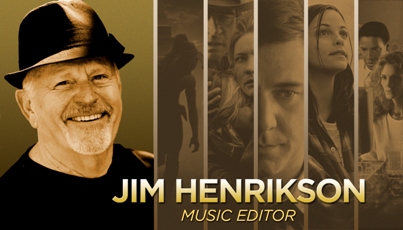
|
«James asked if I would be his music editor on future projects and I was very happy to accept» Celebrating the third anniversary of James Horner Film Music.com, BSOSpirit has the honor of collaborating with the prestigious french website, interviewing one of the composer’s longtime partners, the legendary Jim Henrikson. -Let’s start with a brief introduction of the role of the music editor, and what responsibilities are entailed? The music editor will monitor the completion of the score and attend all recording sessions. When editing changes take place that affect scoring it’s his task to keep the composer informed and make the appropriate revisions to the cue breakdown. The music editor may run the cueing system which the conductor uses to maintain visual and audio sync while recording. Once the music is recorded the music editor will synchronize the tracks with the picture and may be responsible for editing cues to accommodate changes made in the film after scoring. After the final mix or dubbing process is complete he or she will be responsible for delivering cue sheets used for calculating royalties. -What circumstances call for a supervising music editor? The tasks of the music editor have become so complex over the years that it is now commonplace to have more than one person attending to these tasks. When I started a music editor would almost always be working alone and without an assistant. In recent years I might take the “Supervising Music Editor” credit when there were multiple editors on the job. -The first time you worked with James Horner was in 1985 on Heaven Help Us, then from Willow in 1988 you have participated in almost all of his soundtracks. Your long career has been connected to James Horner for more than a quarter of a century, now. Can you recount your first encounter with him, back in the day, that kicked off this extraordinary collaboration? Was there any sort of «moment of truth» when you realized that James and you were a perfect working match, that you’d go on to have such a long and fruitful collaboration? -Tell us a little bit about the nature of your collaboration, the levels of trust and understanding that must have developed between you over the course of 25 years. What areas have seen the greatest growth in trust, perhaps certain latitude he didn’t used to afford you but now does? (Or has that trust and understanding been more or less in place from day one?) -Clearly you’re very familiar with James Horner’s music. What do you appreciate most in his music? There are three areas where I feel he is unsurpassed. 1: His filmic sense and sensitivity that supports the film musically without overshadowing the storytelling. 2: His melodic writing. 3: His orchestrations. James has used orchestrators throughout his career but he has also done many of his own orchestrations and the work of his collaborators always bears his stamp. -As fans, we greatly admire James Horner’s ability as a storyteller: both in how well his music accompanies the visuals of a film, but also how his music on its own has distinctively strong narrative qualities. In your job as an editor, does one aspect necessarily take precedent over the other? Is the musical narrative as important as what’s happening on screen? (Are there times when you’ve needed to edit the music in such a way as to enhance on-screen synchronicity but sacrificed the inherent narrative of the musical elements? Or vice versa?) -Which are your favorite works through all your collaboration with James, both in terms of final output and in terms of the overall working experience? Field of Dreams, Sneakers, Braveheart, Mask of Zorro for the total experience both filmic and musical. -Do you have any anecdotes from scoring sessions you’d like to share with us? Yes, but then I’d have to kill you. -Are you responsible for temp-tracking? If so, what guidelines do you generally follow? -A lot of conductors rely on a ‘click track’ during the recording session to help bring the orchestra together with regards to tempo and hitting specific hits and marks in the on-screen action, to achieve perfect music-to-picture synchronization. We’ve read that James doesn’t typically use click tracks, but have you ever been involved in designing click tracks for James? If not, does this simplify or complicate your job later? James is a marvelous conductor. He prefers not to use click tracks because it’s his belief it constrains the flow of the music. He is capable of bending time which creates a concert hall performance as opposed to a more mechanical one. That said, he will use clicks during an up-tempo action sequence to help the orchestra execute more precisely -Have there been any projects that were notably more difficult than others? For example, we know Troy presented a severe time deficit and Windtalkers required a great number of revisions. Can you share any insights gained from those projects? Any challenging situations we might not know about? -To that point, we’re sure there’s a lot to be discussed about collaborating with such a demanding director as James Cameron. Could you elaborate on the development of your working processes that culminated in the creation of such iconic scores as Titanic or Avatar? Working with Jim Cameron is an experience unto itself. Almost everything in the film making process is in play throughout post-production. It feels like everything but re-casting is on the table….you just have to keep up. He makes you stretch but no one works harder that he does. Avatar was a very similar experience only longer. Simon Rhodes, Ian Underwood and I lived in a rented house/studio in Calabasas for 11 months. James, with the collaboration of Simon Franglen, Aaron Martin and a host of other musicians and vocalists mocked up the entire score and waited for Jim to bless each cue before it was turned over for orchestrations. The last 3 months of work were pretty much 7 days a week. -The Mask of Zorro is one our favorite scores. There are many diverse, unusual elements coming together to create the final sonic landscape. Can you tell us about your involvement in bringing all that together, or any other inside perspective you can give us on the creation of this auditory tour de force? -With A Beautiful Mind, James was nominated for an Academy Award. What can you tell us about your work together with James and Ron through the years, culminating in this film and the beautiful The Missing? -Do you participate in the final mixing of the film? And if so, do you play a role in how well music is placed and mixed compared to sound effects? We have been so fortunate to have worked with so many talented music dubbing mixers. Andy Nelson, Rick Kline, Scott Milan to name a few. They’re expertised coupled with the unmatchable recording and mixing done by James’ recording engineer Simon Rhodes ensures that the music will be heard in the film exactly as it should be. I might have offered a suggestion now and again but for the most part my job is to keep James’ apprised of the progress. He always attends the final playback before changes to give his comments on the soundtrack. -Do you mix music for an album presentation differently than for film? If so, what factors play a role in your decisions? -Do you listen to film music for your own personal enjoyment? If so, what albums or composers do you appreciate? I find film music to be small portion of my personal listening except for the submissions for the Academy Awards. I enjoy many genres of music leading with jazz, classical, world, pop and some country and folk. I do really like the work of Thomas Newman, Alexander Desplat and Michael Giacchino. -Is there anything you can share with us regarding the music to Romeo & Juliet? The music was recorded over a year ago, but of course, we’ve never heard a note of it (nor are we likely to). Any impressions you could give us would be fantastic. A very disappointing experience. James score was very beautiful and understated. Due to a disagreement amongst producers and a disappointing reaction to early screenings James’ score was replaced to save the movie. It didn’t help. -Could you tell us about new upcoming projects with James, maybe Wolf Totem? James has taken a year off since Romeo & Juliet. I know he has been speaking with Jean Jacques Annaud re: Wolf Totem but there is no schedule as yet. Of course there are those 3 Avatar sequels looming on the distant horizon. |
Questions & interview: Jean-Baptiste Martin Questions & translation into Spanish: Asier G. Senarriaga BIO: Jim Henrikson is a veteran Hollywood music editor who worked on Star Trek: The Original Series for one and half seasons. Before Star Trek, Henrikson worked as music editor on the television series The Texan and the 1964 film The Best Man. Afterwards, he built a long and distinguished career in music editing, spanning five decades. He worked in this capacity on such classic films as The China Syndrome (1979), Raging Bull (1980), The Cannonball Run (1981), Flashdance (1983), Stroker Ace (1983), Honey, I Shrunk the Kids (1989), Willow (1988), Glory (1989), The Pelican Brief (1993), Braveheart (1995), Apollo 13 (1995), Titanic (1997), Deep Impact (1998), The Mask of Zorro (1998), A Beautiful Mind (2001) or Troy (2004). His most recent works are James Cameron’s 2009 science fiction blockbuster Avatar, Black Gold (2011) or The Amazing Spider-Man (2011) (the last fifteen of these titles featuring a musical score by James Horner) (Source: memory-alpha.org) Article published in collaboration with jameshorner-filmmusic.com Special thanks to Jean-Baptiste Martin for making possible this new collaboration between our sites. Special thanks to Javier Burgos for the creation and design of the banner that announces this interview. PHOTOS: 1. Ethnic instruments used on Apocalypto scoring at Abbey Road. 2. Shekhar Kapur, Rahat Nusrat Fateh Ali Kahn, James Horner on Four Feathers. 3. Jim at work in the Abbey Road Canteen. 4. Last session on Todd AO Scoring stage 2007. 5. Spiderman Music Crew. Back Row: Simon Rhodes, Simon Franglen, Barbara McDermott, Jim Henrikson. Front Row: Ian Underwood, James Horner, Joe Rand. 6. Simon Rhodes at the desk. |


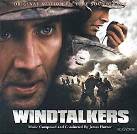 Windtalkers revisions were due to picture re-cutting more than anything else. John Woo did have some musical notes that were incorporated in the final dubb. Almost all projects now require the composer to provide mock-ups of all the music cues before recording them on a scoring stage. This is complicated by the fact that today we rarely work with a “locked “ picture.
Windtalkers revisions were due to picture re-cutting more than anything else. John Woo did have some musical notes that were incorporated in the final dubb. Almost all projects now require the composer to provide mock-ups of all the music cues before recording them on a scoring stage. This is complicated by the fact that today we rarely work with a “locked “ picture.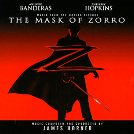 One of mine as well. James used flamenco dancers to underscore a major swordfight. A guitar ensemble as well. Old fashioned stunts, not visual effects. Reminded me of The Crimson Pirate, a Burt Lancaster movie from the 50’s. The movie was so much fun to work on as well as watch. Martin Campbell wound up shooting a new ending which we scored in L.A.
One of mine as well. James used flamenco dancers to underscore a major swordfight. A guitar ensemble as well. Old fashioned stunts, not visual effects. Reminded me of The Crimson Pirate, a Burt Lancaster movie from the 50’s. The movie was so much fun to work on as well as watch. Martin Campbell wound up shooting a new ending which we scored in L.A.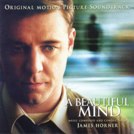 Ron Howard was always a delight to work with. He is very collaborative and a real gentleman. Very appreciative of the work you do and let you know it. I think James’ score for A Beautiful Mind is one of his best. I don’t think The Missing quite came together as successfully as some of Ron’s other films. He wanted it to be very edgy and encouraged James to use a lot of synth cues and dark sounds. In the big rescue scene we wound up using more heroic cues from other sequences in the film. I liked the performances by Cate Blanchett and Tommy Lee Jones but thought the villain was a bit over the top.
Ron Howard was always a delight to work with. He is very collaborative and a real gentleman. Very appreciative of the work you do and let you know it. I think James’ score for A Beautiful Mind is one of his best. I don’t think The Missing quite came together as successfully as some of Ron’s other films. He wanted it to be very edgy and encouraged James to use a lot of synth cues and dark sounds. In the big rescue scene we wound up using more heroic cues from other sequences in the film. I liked the performances by Cate Blanchett and Tommy Lee Jones but thought the villain was a bit over the top.

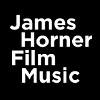
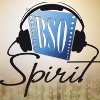
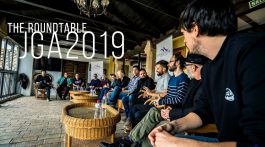
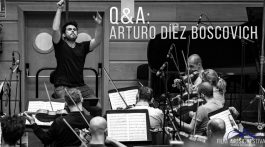
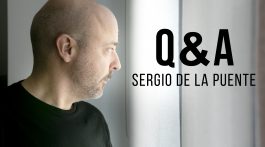
No hay comentarios